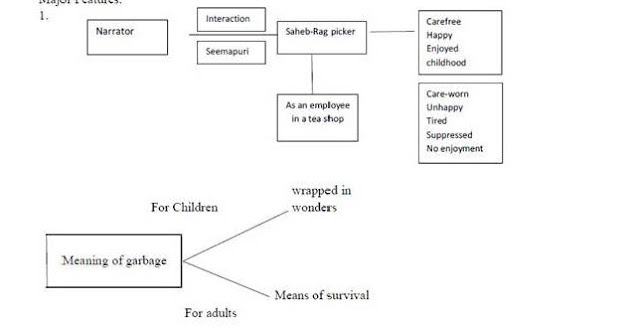Should Wizard Hit Mommy? (Intro)
In the story, ‘Should Wizard hit mommy’, the writer, John Updike examines the issues of parenting and the flaws that inadvertently creep in. The adult tendency to quell the questioning mind of a child and also the intrusion of the beliefs held by adults to represent the only valid viewpoint, are areas that find mention in this simple yet powerful story.
Jo, the four-year-old daughter of Jack, has been subjected to a bedtime story telling by her father ever since she was two years of age. As the story has a slight variation of a basic talk. It follows a simple unchanging plot in which the various characters all bear the name of Roger and the ending is predictable. Jack prides himself on what he thinks of as his ingenuity, and is especially proud his ability to enact the role of the old wizard, an integral part of each story, changing his voice so much better when Jo was smaller and would go to sleep sooner. He things of her two-year-old brother, Bobby, peacefully asleep and is almost pleased that Jo has requested that the character for the night’s story should be Roger Skunk, a new character. His creativity is momentarily stirred and he embarks on his story, though following the same basic plot that has been used each night, for each story and each character for the past two years.
The story of the smelly Skunk who smelt so bad that he did not have any friends follows the same course except that in mentioning this fact, Jack is reminded of his own childhood and its humiliations and begins to feel that he is actually telling Jo something that is true and thus is no hurry to go any faster. When Jo interrupts, he is irritated by her and is even more so when she asks whether magic spells are real. He is reminded that of late she has been asking many questions. This wonderful evidence of Jo’s inquisitive progressing mind and intellect completely escapes Jack, so intent on getting on with the story s planned by him. His answers to her questions are short and peremptory and he fails to notice that her question about whether the old wizard could die might be assign of an inner fear. He continues with the story and so uninvolved is he in the story that Jo has t remind him that he has referred to Roger Skunk as Roger Fish.
In comes as a rude shock to Jack to discover that though Jo is exhibiting the desired response to each fragment of the story, the response is insincere and even reminds him of his wife pretending pleasure at a cocktail party. As the story that Jack is narrating comes to an end, he notices that Jo is expecting it to end this way and this annoys him for some inexplicable reasons. He cannot bear it when women take things for granted and he decided to continue with the story giving it a twist. In his story the wizard could die might be sign of an inner fear. HE continues with the story and so uninvolved is he in the story that Ho has to remind him that he has referred to Roger Skunk as Roger Fish.
He cannot bear it when women take things for granted and he decides to continue with the story giving it a twist. In his story the wizard has changed Skunk so that he smelt of roses but mother Skunk disapproved of this and hit the wizard with her umbrella making him change Skunk back to his old stinking self.
The end of the story does not appeal to Jo who wants the wizard to hit mommy, but Jack tells her that mommy knows what is best for her child. It is evident that the story violates Jo’s sense of fairness for why should Roger Skunk not smell of roses and thus have more friends? It is also apparent that in a way Jo’s authority, for do not adults knows best! Jack feels threatened by Jo’s attitude and when he finds that she is restless after he has come downstairs, he uses the ultimate weapon of adult authority does she want him to spank her, he asks.
Jack finds his wife painting the chair downstairs. She is expecting their third child and is wearing his shirt ever her maternity dress. He notices that half the chair is still the old dirty color while the other half is the color of ivory. He finds himself caught somewhere in an ugly middle position. This is perhaps an indication of the confusion that Jo’s questioning has caused. The idea is not only shocking but also quite unacceptable to him. The reader does get the distinct impression that Jack is not used to his authority being questioned by anyone and least of all a little child. He finds it hard to come to terms with the fact that he no longer accepts what he says and is not afraid to assert her opinion. The fact that she insists on his changing the ending of the story the following night also indicated that she has lost faith in adult wisdom and has a mind of her won, something that Hack cannot understand or accept.
The writer brings into focus the impatience and insensitivity that adults display in their dealing with children and the intolerance they exhibit if they feel that their authority is being questioned. He also high lights the adult habit of imposing their opinion on children and that of discouraging any queries. So caught up are adults in the web of life that they lose their sense of perception which is so sharp in children. Also, the adult viewpoint is most often colored by the intrusive hues of their various experience in life.

